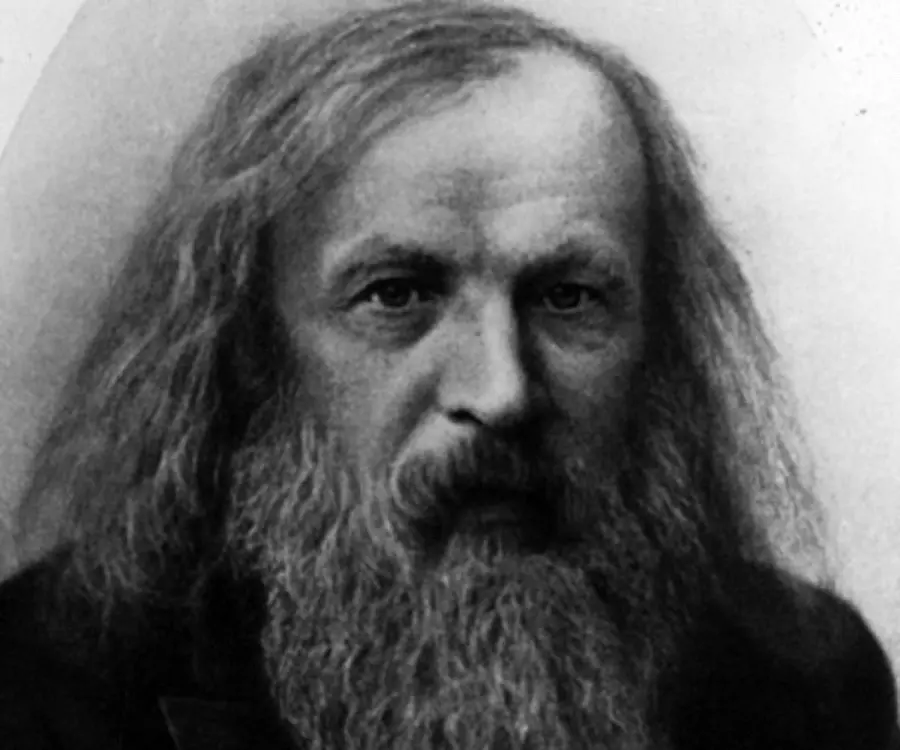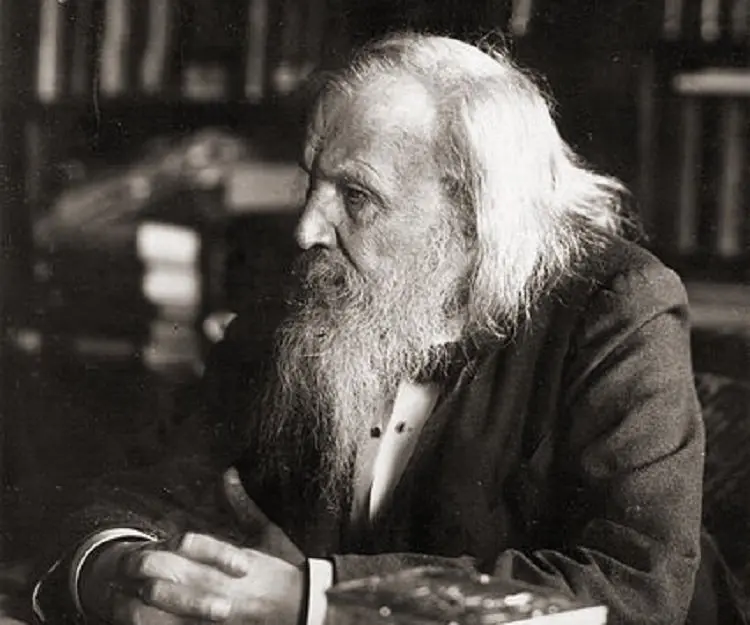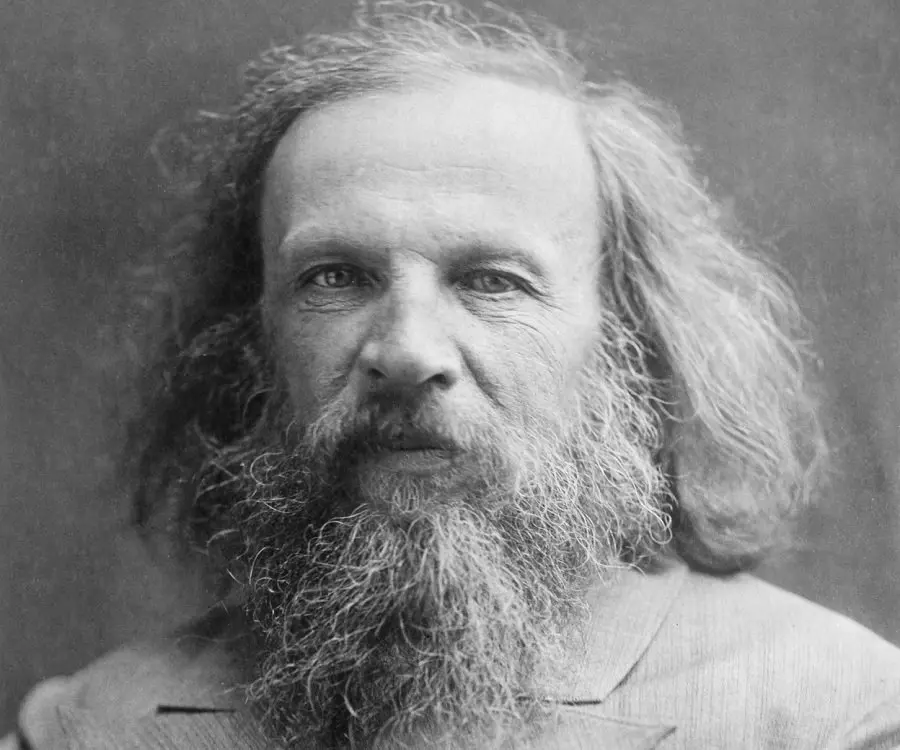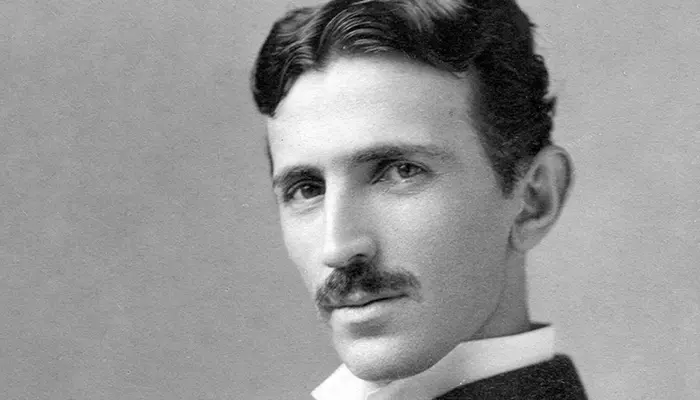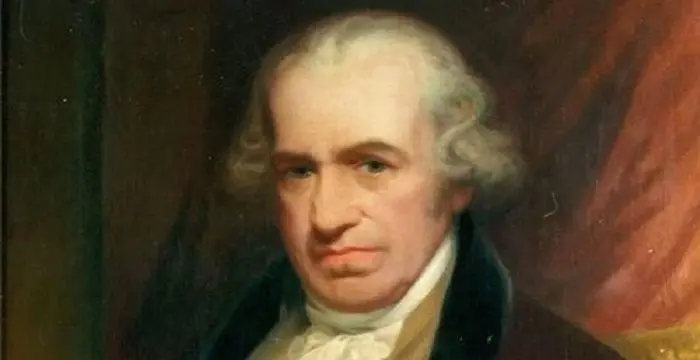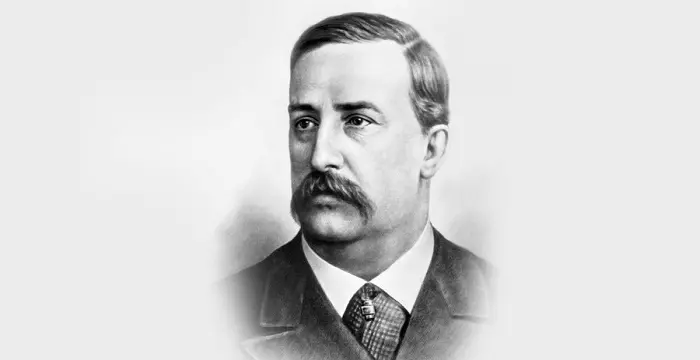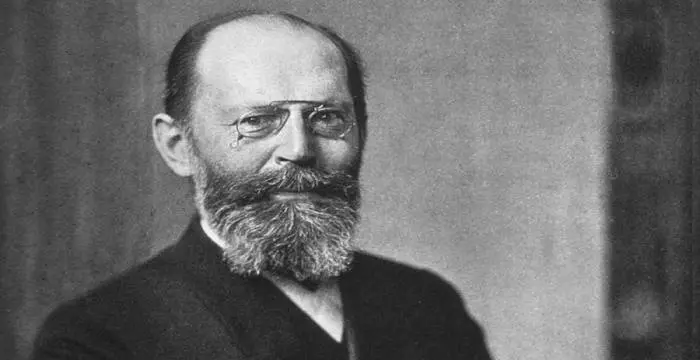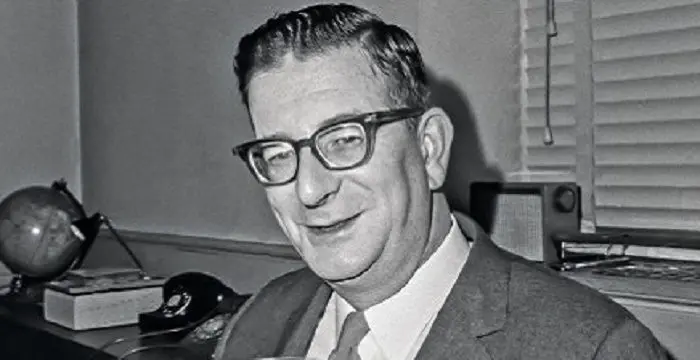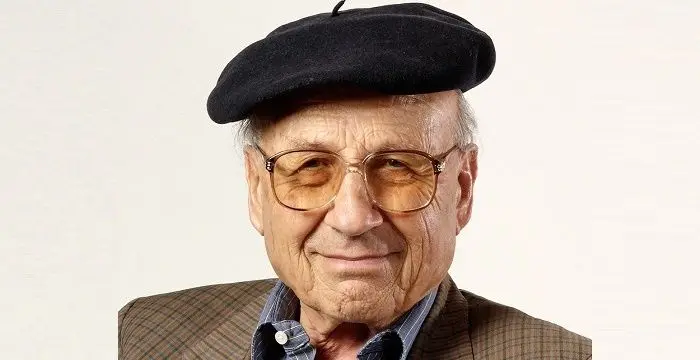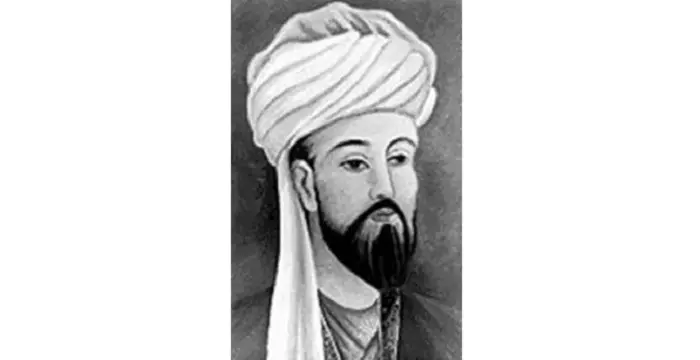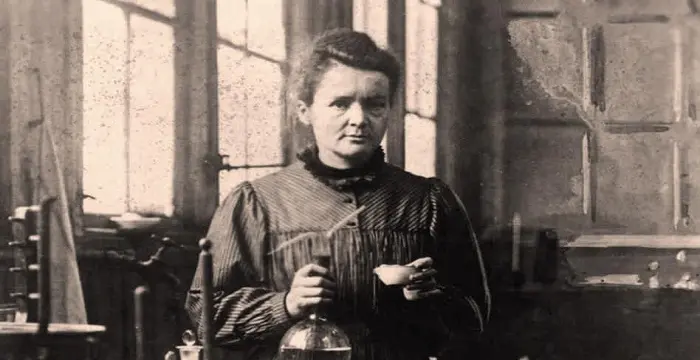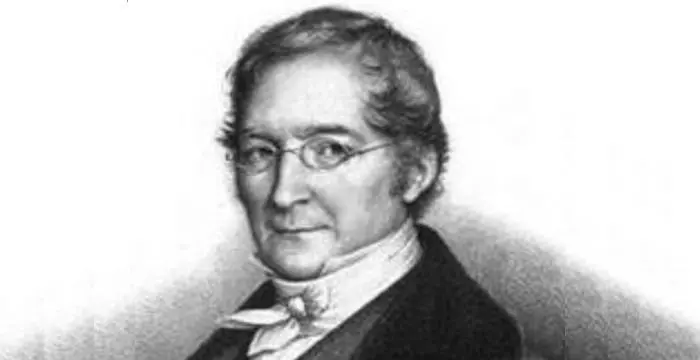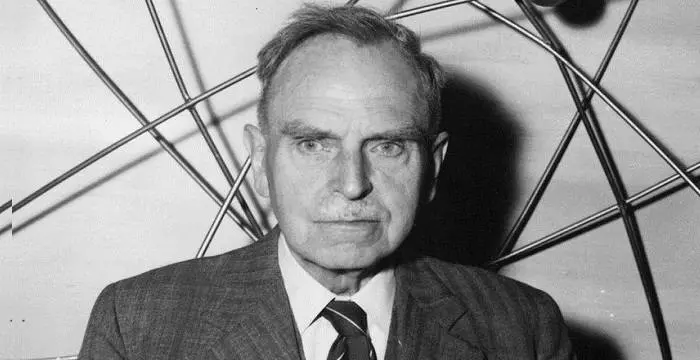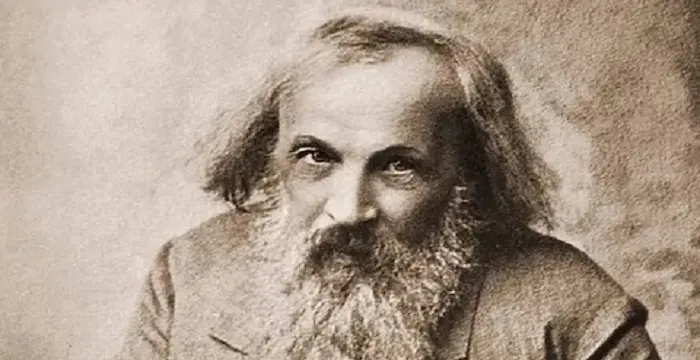
Dmitri Mendeleev - Inventor of Periodic Table, Birthday and Life
Dmitri Mendeleev's Personal Details
Dmitri Mendeleev was a Russian chemist who is best known for his discovery of the periodic law
| Information | Detail |
|---|---|
| Birthday | February 8, 1834 |
| Died on | February 2, 1907 |
| Nationality | Russian |
| Famous | Inventors & Discoverers, Chemists, Organic Chemists, Inventor of Periodic Table |
| Spouses | Anna Ivanova Popova, Feozva Nikitichna Leshcheva |
| Siblings | Masha Mendeleeva |
| Known as | Dmitri Ivanovich Mendeleev, Dmitri Ivanovich Mendeleyev, Dmitry Ivanovich Mendeleyev |
| Childrens | Ivan Mendeleev, Lyubov Dmitrievna Mendeleeva, Maria Mendeleeva, Olga Mendeleeva, Vasily Mendeleev, Vladimir Mendeleev |
| Universities |
|
| Discoveries / Inventions |
|
| Birth Place | Tobolsk |
| Religion | Eastern Christianity |
| Gender | Male |
| Father | Ivan Pavlovich Mendeleev |
| Mother | Maria Dmitrievna Mendeleeva |
| Sun Sign | Aquarius |
| Born in | Tobolsk |
| Famous as | Inventor of Periodic Table |
| Died at Age | 72 |
Dmitri Mendeleev's photo
Who is Dmitri Mendeleev?
Dmitri Mendeleev was a Russian chemist who greatly impacted the scientific community with his discovery of the periodic law and by successfully organizing the elements into the periodic table. His early life was marked by struggle and tragedy. By the time he was 21, he had lost his father and was suffering from tuberculosis. He buried himself in his scientific studies and went on to become a science professor. As a teacher, he realized that there was no comprehensive and complete textbook for his students. To correct this, he set out to publish a textbook that would provide a better learning experience for Russian students. He utilized his strong academic background, international scientific research and innovative theories to publish over 400 articles and books over his lifetime. Mendeleev, though best known for the periodic table, was also strongly interested in developing and improving Russia’s agricultural and industrial resources. He served as an advisor to the government, and he wrote several projects to develop the coal industry. He traveled throughout the Russian empire and even went to the United States to learn about petroleum. Near the end of his lifetime, he retired from teaching and turned his focus to metrology. In only a few short years, he published his own journal of metrology. His dedication to various disciplines is overshadowed by his enormous scientific discovery of the periodic table of elements
// Famous Inventors & Discoverers
Nikola Tesla
Nikola Tesla was a Serbian-American inventor, best known for his development of alternating current electrical systems. This biography of Nikola Tesla provides detailed information about his childhood, life, achievements, works & timeline.
Thomas Newcomen
Thomas Newcomen was a British inventor who developed the world’s first steam engine. Browse through this biography to learn in details about his life, career, works and timeline.
Erno Rubik
The famous inventor and educationist, Erno Rubik is known world-wide for his invention the ‘Rubik’s Cube’. To know more about the childhood, profile, timeline and career of this famous architect-inventor read on.
Childhood & Early Life
Dmitri Mendeleev was born on February 8, 1834, in Verkhnie, Aremzyani, a small Russian province. The exact number is unknown, but it is believed that he had at least 16 brothers and sisters.
His childhood was marked by tragedy when his father, Ivan Mendeleyev, began having health problems. He passed away in 1847 leaving Dmitri’s mother to work at a glass factory to support the family.
Tragedy struck again in 1848 when the glass factory his mother managed burned down. The family was forced to move to St. Petersburg.
In 1855 Mendeleev was diagnosed with tuberculosis, but he continued to pursue his education to become a teacher. He graduated from the Main Pedagogical Institute in St. Petersburg.
Career
In 1855, Mendeleev became a science teacher in Crimea. He soon decided to move back to St. Petersburg and continue his education. A year later he completed his Masters degree in Chemistry.
He became a professor at the University of St. Petersburg. He realized the great need for an organized and quality chemistry textbook, so he began to research and work on one of his own.
In 1861, he released ‘Organic Chemistry’, a 500 page textbook. The book went on to win the Domidov Prize and push Mendeleev to fame in the scientific community.
In 1867, he was honored with the Chair of General Chemistry at the University of Saint Petersburg. He used his position to push Russia to improve and focus on their understanding of chemistry.
In 1869, Mendeleev came out another major book, ‘The Principles of Chemistry’. The book became so popular that it was translated to French, German, and English.
In 1869, he published his major work ‘The Relation between the Properties and Atomic Weights of Elements’. He organized the 65 known elements into the periodic table.
By 1889 Mendeleev had perfected his periodic table of elements. He presented his representation in London, and it is this model that is still used today.
In 1890, he retired from his university position. The same year, he took a position as a government consultant. He was strongly interested in developing Russia’s industrial and agricultural resources.
He was particularly interested in petroleum. His research helped to found Russia’s first oil refinery.
In 1893, he became director of the Central Board of Weights and Measures in Russia. He published several articles in the ‘Brockhaus Encyclopedia’ and reviewed numerous reprints of his “Principles of Chemistry”.
Major Works
Mendeleev released the periodic table in 1869. His revolutionary organization of the elements correctly assumed that some of the elements had their atomic weights measured incorrectly and that eight new elements existed. As new elements were found and his theories were further proven correct, his scientific reputation was enhanced even more.
Awards & Achievements
He was awarded with the Copley Medal in 1905. This British Royal Society gave him this highest honor for his famous scientific discovery, the periodic table.
Personal Life & Legacy
Mendeleev married Feozna Nikitchna Lascheva on 27 April 1862. The marriage lasted for nearly 20 years before the couple divorced in 1882. He had two children from this marriage: son Vladimir and daughter Olga.
In 1882 Mendeleev married Anna Ivanova Popova and this union resulted in four children.
He passed away on February 2, 1907. His funeral was in St. Petersburg and many people brought along copies of the Periodic Table as tribute to his contributions to science.
Element number 101 was discovered in 1955. It was named Mendelevium to honor his contributions to science.
Trivia
In 1855 Mendeleev fell ill with tuberculosis. Doctors believed he had only two years to live, but he went on to live for 52 more years.
He wrote his textbook, ‘Organic Chemistry’, in only 61 days. The book is 500 pages and went on to win the Domidov Prize.
Nearly all of Mendeleev’s biographies detail his scientific findings. The truth is, however, he spent more time and pondered more on questions regarding the national economy rather than chemistry.
There is a popular Russian myth that it was Mendeleev who set the 40% standard strength of vodka. The truth is the government already had these standards when he was only nine years old.
In 1906, Nobel Committee for Chemistry recommended Mendeleev's name to the Swedish Academy for the Nobel Prize in Chemistry. However, Svante Arrhenius, who had a great deal of influence on Swedish Academy, pressured the Academy to reject Mendeleev's name. Arrhenius nursed a personal grudge against Mendeleev because of Mendeleev's critique of Arrhenius's dissociation theory.
// Famous Organic Chemists
Aleksandr Borodin
Aleksandr Borodin was a prodigal Russian music composer and scientist. This biography gives detailed information about his childhood, life, works, achievements and timeline.
Hermann Emil Fischer
Emil Fischer was a Nobel Prize winning chemist from Germany who is known for inventing the ‘Fischer Projection’ method. To know more about his childhood, career, profile and timeline read on
Robert Burns Woodward
Robert Burns Woodward was a Nobel Prize winning American chemist known for his work on complex natural products. Check out this biography to know about his childhood, life, achievements, works & timeline.
Dmitri Mendeleev's awards
| Year | Name | Award |
|---|---|---|
Other | ||
| 0 | 1862 - Demidov Prize | |
| 0 | 1905 - Copley Medal | |
Dmitri Mendeleev biography timelines
- // 8th Feb 1834Dmitri Mendeleev was born on February 8, 1834, in Verkhnie, Aremzyani, a small Russian province. The exact number is unknown, but it is believed that he had at least 16 brothers and sisters.
- // 1847His childhood was marked by tragedy when his father, Ivan Mendeleyev, began having health problems. He passed away in 1847 leaving Dmitri’s mother to work at a glass factory to support the family.
- // 1848Tragedy struck again in 1848 when the glass factory his mother managed burned down. The family was forced to move to St. Petersburg.
- // 1855In 1855 Mendeleev was diagnosed with tuberculosis, but he continued to pursue his education to become a teacher. He graduated from the Main Pedagogical Institute in St. Petersburg.
- // 1855In 1855, Mendeleev became a science teacher in Crimea. He soon decided to move back to St. Petersburg and continue his education. A year later he completed his Masters degree in Chemistry.
- // 1855In 1855 Mendeleev fell ill with tuberculosis. Doctors believed he had only two years to live, but he went on to live for 52 more years.
- // 1861In 1861, he released ‘Organic Chemistry’, a 500 page textbook. The book went on to win the Domidov Prize and push Mendeleev to fame in the scientific community.
- // 27th Apr 1862 To 1882Mendeleev married Feozna Nikitchna Lascheva on 27 April 1862. The marriage lasted for nearly 20 years before the couple divorced in 1882. He had two children from this marriage: son Vladimir and daughter Olga.
- // 1867In 1867, he was honored with the Chair of General Chemistry at the University of Saint Petersburg. He used his position to push Russia to improve and focus on their understanding of chemistry.
- // 1869In 1869, Mendeleev came out another major book, ‘The Principles of Chemistry’. The book became so popular that it was translated to French, German, and English.
- // 1869In 1869, he published his major work ‘The Relation between the Properties and Atomic Weights of Elements’. He organized the 65 known elements into the periodic table.
- // 1869Mendeleev released the periodic table in 1869. His revolutionary organization of the elements correctly assumed that some of the elements had their atomic weights measured incorrectly and that eight new elements existed. As new elements were found and his theories were further proven correct, his scientific reputation was enhanced even more.
- // 1882In 1882 Mendeleev married Anna Ivanova Popova and this union resulted in four children.
- // 1889By 1889 Mendeleev had perfected his periodic table of elements. He presented his representation in London, and it is this model that is still used today.
- // 1890In 1890, he retired from his university position. The same year, he took a position as a government consultant. He was strongly interested in developing Russia’s industrial and agricultural resources.
- // 1893In 1893, he became director of the Central Board of Weights and Measures in Russia. He published several articles in the ‘Brockhaus Encyclopedia’ and reviewed numerous reprints of his “Principles of Chemistry”.
- // 1905He was awarded with the Copley Medal in 1905. This British Royal Society gave him this highest honor for his famous scientific discovery, the periodic table.
- // 2nd Feb 1907He passed away on February 2, 1907. His funeral was in St. Petersburg and many people brought along copies of the Periodic Table as tribute to his contributions to science.
// Famous Chemists
Henry Cavendish
Henry Cavendish was a theoretical chemist and physicist, renowned for discovery of hydrogen and calculation of the mass of earth. To know more about his childhood, profile, timeline and career read on
Walter Kohn
Nobel Laureate Walter Kohn was an Austrian-born American theoretical chemist and physicist. Check out this biography to know about his childhood, life, achievements, works & timeline.
Jabir Ibn Hayyan
Jabir Ibn Hayyan was a medieval era polymath. Check out this biography to know about his life, works and achievements.
Marie Curie
Marie Curie was a Physicist and Chemist, who was world renowned for her work on radioactivity. She also was the winner of two Nobel Prize. Read this biography to get info about her life and profile.
Amedeo Avogadro
Amedeo Avogadro was an Italian scientist who formulated what is now known as Avogadro's law. This biography of Amedeo Avogadro provides detailed information about his childhood, life, achievements, works & timeline.
Otto Hahn
Otto Hahn was a Nobel Prize winning German scientist who discovered the phenomenon of nuclear fission and the element protactinium. To know more about his childhood, career, profile and timeline read on
Dmitri Mendeleev's FAQ
What is Dmitri Mendeleev birthday?
Dmitri Mendeleev was born at 1834-02-08
When was Dmitri Mendeleev died?
Dmitri Mendeleev was died at 1907-02-02
Where was Dmitri Mendeleev died?
Dmitri Mendeleev was died in Saint Petersburg
Which age was Dmitri Mendeleev died?
Dmitri Mendeleev was died at age 72
Where is Dmitri Mendeleev's birth place?
Dmitri Mendeleev was born in Tobolsk
What is Dmitri Mendeleev nationalities?
Dmitri Mendeleev's nationalities is Russian
Who is Dmitri Mendeleev spouses?
Dmitri Mendeleev's spouses is Anna Ivanova Popova, Feozva Nikitichna Leshcheva
Who is Dmitri Mendeleev siblings?
Dmitri Mendeleev's siblings is Masha Mendeleeva
Who is Dmitri Mendeleev childrens?
Dmitri Mendeleev's childrens is Ivan Mendeleev, Lyubov Dmitrievna Mendeleeva, Maria Mendeleeva, Olga Mendeleeva, Vasily Mendeleev, Vladimir Mendeleev
What was Dmitri Mendeleev universities?
Dmitri Mendeleev studied at Saint Petersburg State University, Heidelberg University
What is Dmitri Mendeleev's inventions/discoveries?
Periodic Table, Pycnometer, Pyrocollodion was invented (or discovered) by Dmitri Mendeleev
What is Dmitri Mendeleev's religion?
Dmitri Mendeleev's religion is Eastern Christianity
Who is Dmitri Mendeleev's father?
Dmitri Mendeleev's father is Ivan Pavlovich Mendeleev
Who is Dmitri Mendeleev's mother?
Dmitri Mendeleev's mother is Maria Dmitrievna Mendeleeva
What is Dmitri Mendeleev's sun sign?
Dmitri Mendeleev is Aquarius
How famous is Dmitri Mendeleev?
Dmitri Mendeleev is famouse as Inventor of Periodic Table
